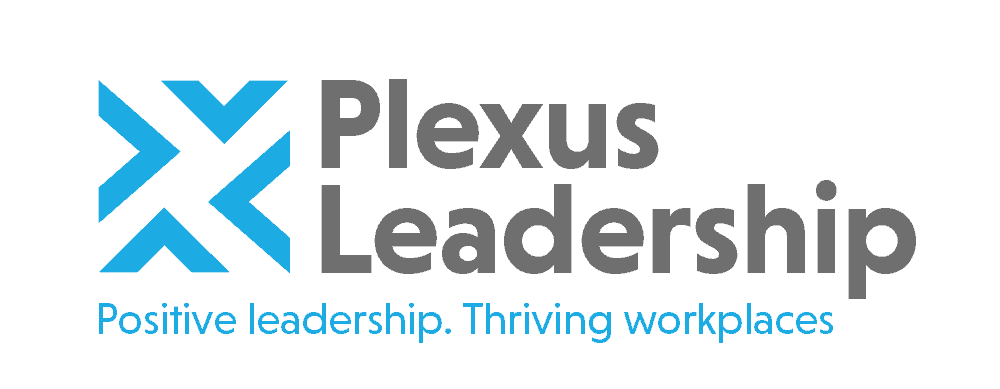The value of inquiry or powerful questioning is well established and becoming even more relevant given today’s hyper-competitive, fast changing and complex business environment.
Advantages include:
- Inviting people to input diverse perspectives and ideas
- Enabling people to think for themselves and arrive at the best possible solution
- Getting to the heart of an issue by exploring it in depth. Steve Jobs, for example is quoted as saying: “I always asked why we’re doing things the way we’re doing them.”
- Influencing people using softer “pull” rather than more forceful “push” approaches. Studies show that pull-based influencing is typically more effective in achieving win-win solutions than forceful approaches to persuasion.
However, studies show that leaders still use far more advocacy – putting forward arguments as a means of persuasion, rather than engaging in inquiry. This behaviour is frequently reinforced by top leadership and the culture of the organization which encourages ‘push’ or ‘tell’ approaches to getting things done over active listening, exploration and questioning. Leaders also fall into the “trap or illusion of expertise”. This happens when they feel they possess superior expertise and should have all the answers by virtue of their position and/or experience.
Leading management author and business psychologist, Edgar Schein, who wrote a book entitled “Humble Inquiry” defines inquiry as “the fine art of drawing someone out, of asking questions to which you do not already know the answer, of building a relationship based on curiosity and interest in the other person.”. This definition underscores the importance of drawing out others’ ideas and perspectives and asking open-ended questions to help tackle business challenges and create a learning, growth mindset.
In my coaching and leadership development work over several decades, I have observed many leaders make huge strides in the way they lead and influence others through focusing more time and effort on inquiry rather than advocacy in meetings, performance conversations, strategy off-sites and other interpersonal situations.
Asking powerful questions is natural to all of us, it’s something young children discover early on to facilitate learning and growth. However, adults (including leaders) often lose this skill when they move beyond childhood. The good news is that it can be re-learned if practiced consciously and regularly.
Part of the art of inquiry is building up your own arsenal of powerful questions. In doing so, the following principles are important to remember:
- Keep your question clear and straightforward. Avoid double-barrelled, long-winded and indirect questions.
- Questions starting with “what”, “when”, “where” and “how” are more powerful than why”, as the latter can imply judgement or criticism.
- Use probing questions to explore responses in more depth.
- Avoid asking leading questions where you already have an answer or position you want others to support.
- Don’t be afraid to ask challenging questions provided they are constructive and focused on the task rather than the person.
- Sometimes it pays to act ignorant in order to pose breakthrough questions.
Because many leaders struggle to know where to start when making the shift to more inquiry, I have provided below powerful questions you can ask across a variety of situations:
Planning a new strategy
- What is our purpose?
- Who are our most important customers? How will they and their needs change in future?
- What do we want customers to be saying about our products and value?
- What are our 5 most important goals for the next 3-5 years?
- How will we measure our success?
Problem-solving
- Who owns this problem?
- What are the options? What are the upsides/downsides of each?
- What criteria/decision principles are we using to evaluate the options?
- What data/facts do we still need in order to make a good quality decision?
- Do we need to decide this right now? What might we gain/lose by waiting?
Onboarding a new hire
- What is already working well that you can build on?
- What are your expectations of me as a leader?
- What would you like to know about me (skills, strengths, experience, interests, etc.)?
- What are your observations about things we can improve?
- How can I help?
Performance conversations
- What have you done particularly well?
- What have been the most energizing aspects of the job? And the least energizing?
- What new skills or capabilities will help you strengthen your performance?
- What’s the biggest challenge you’re facing? How can you tackle this?
- How can I best support you?
Overcoming conflict
- What outcome are you looking for in order to resolve this? What’s most important for you?
- What aspects of my position/view do you agree with?
- Can you imagine a solution that might satisfy both of us (at least partially)? How can we move towards this?
- What are the risks (for us, the organization and other stakeholders) if we don’t reach agreement?
- What positive steps can we take in the next 30 days to try to resolve this together?
Leading change
- What else do you need to know about why we are changing?
- What ideas do you have to help us achieve the desired future state?
- How can we minimise any adverse impact on people?
- What support can you provide to achieve the desired future state?
- What are you most concerned about? Is there any help I can provide to support you with these concerns?
Managing your career (and those of others)
- What roles and tasks energize you most?
- What are your standout strengths and skills? How can you optimize these?
- In the next 5 years of your career, what would you most like to achieve? Taking this into account, what development goal would you like to focus on in the next year?
- What is the biggest performance risk (i.e., weakness, overplayed strength or psychological barrier) you would like to tackle to improve your effectiveness?
- What support will you need to achieve your goals?
Becoming a stronger leader (building self-awareness)
- How do you measure your impact as a leader? Is this in line with how others measure it?
- How would your direct reports describe your strengths and improvement areas as a leader?
- What 3 words would you like others to use to describe you when you’re not in the room?
- When have you come up short? How can you develop these areas?
- How can you adapt your leadership to remain relevant in future?
The art of inquiry is at the heart of effective leadership. It enables leaders to unlock the ideas, perspectives and talents of those they are seeking to lead. Inquiry also helps leaders connect with people and build strong relationships of trust, candour and openness. This surfaces diverse opinions and input from those closest to the problems and potential solutions. By staying curious and tapping into different perspectives, leaders can also explore creative options and adapt quicker to changing circumstances. So, if you want to be a great rather than a mediocre leader, start asking more questions today.
Recommended Reading:
Schein, E. H. (2013). Humble Inquiry: The Gentle Art of Asking Instead of Telling. San Francisco: BK Publishers Inc.
Other Posts

About the Author
James Brook
Founder and MD | Leadership Consultant | Organizational Psychologist
James is a leadership consultant, organizational psychologist and executive coach. He has over 25 years’ experience working with leaders, teams and organizations globally to optimize their performance, talent and future success. He specializes in positive leadership, thriving workplaces, collaboration and influencing, organizational change and transformation, accelerating innovation and coaching executives and leaders in innovative sectors including Tech, Digital, E-commerce and Life Sciences.
Before setting up Plexus Leadership, James held leadership roles in HR and Talent Management in the UK and abroad with companies such as NatWest, Yahoo! and Novo Nordisk Pharmaceuticals. After this, he founded and led several talent and leadership consulting and assessment businesses, including Strengthscope®, an online strengths assessment and development business serving a wide range of UK and global clients. James grew this venture into a global market leader before selling the business in 2018.
James has supported, advised and coached leaders and teams globally across diverse industries and geographies. Clients he has worked with include Allen & Overy, Commvault, Equinor, Facebook, GSK, Hilton, John Lewis, Novartis Pharmaceuticals, NHS, Oracle, Sainsbury’s, Swiss Re, Tesco, Takeda Pharmaceuticals, WSP and Yahoo!.
James has a Master’s in Organizational Psychology, an MBA, an Advanced Diploma in Executive Coaching and a Harvard Business qualification in Sustainable Business Strategy. He is a member of the Institute of Directors, the Association of Business Psychologists and a Fellow of the Chartered Institute of Personnel and Development (FCIPD). He is currently undertaking a PhD in Organizational Psychology examining the start-up experiences of Tech and Digital entrepreneurs.
James is a regular contributor and speaker on leadership, coaching, innovative talent management and the future of work. His most recent book, Optimize Your Strengths, explores how leaders can create thriving workplaces by inspiring and supporting people to optimize their potential and teamwork to deliver breakthrough results.





